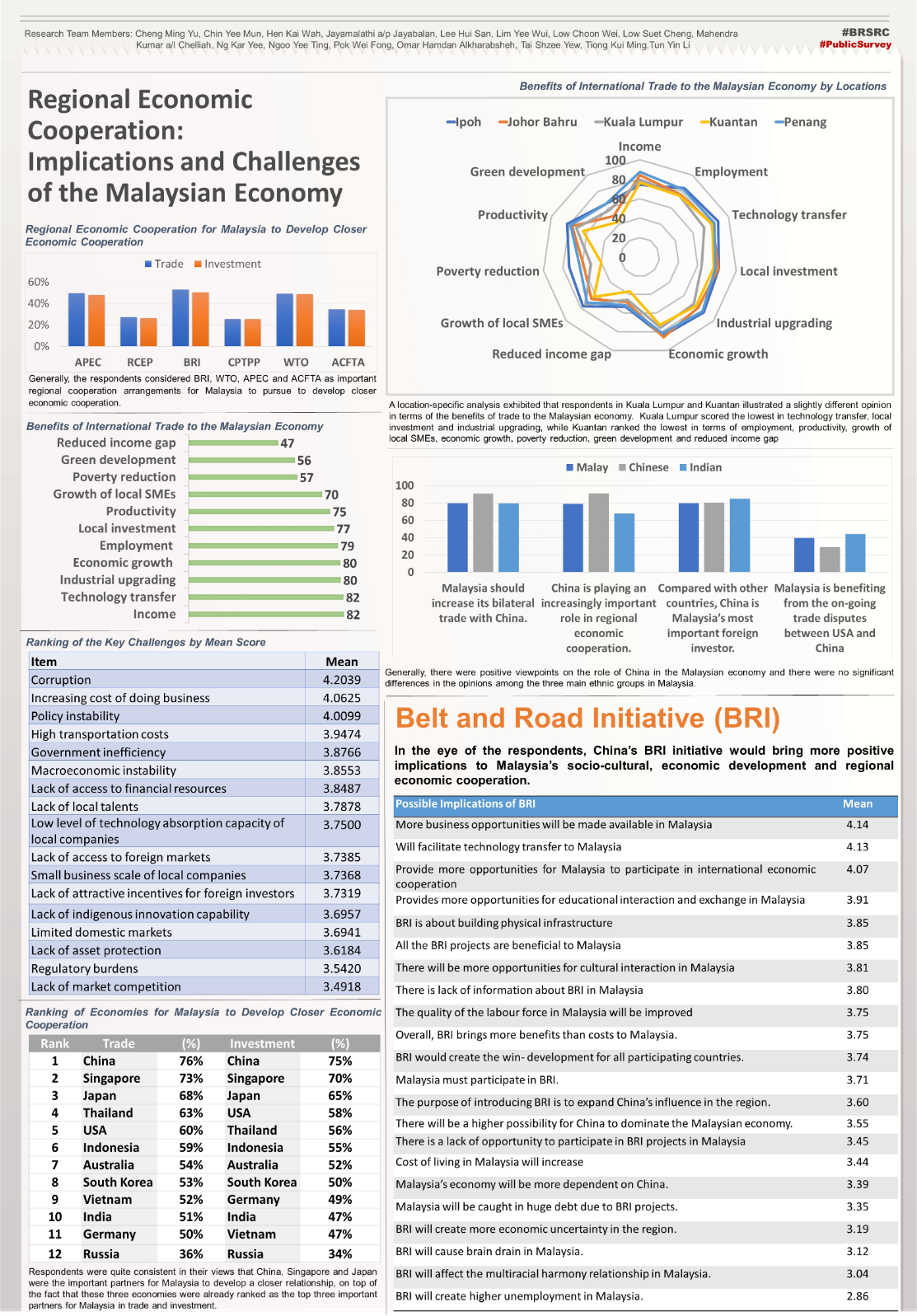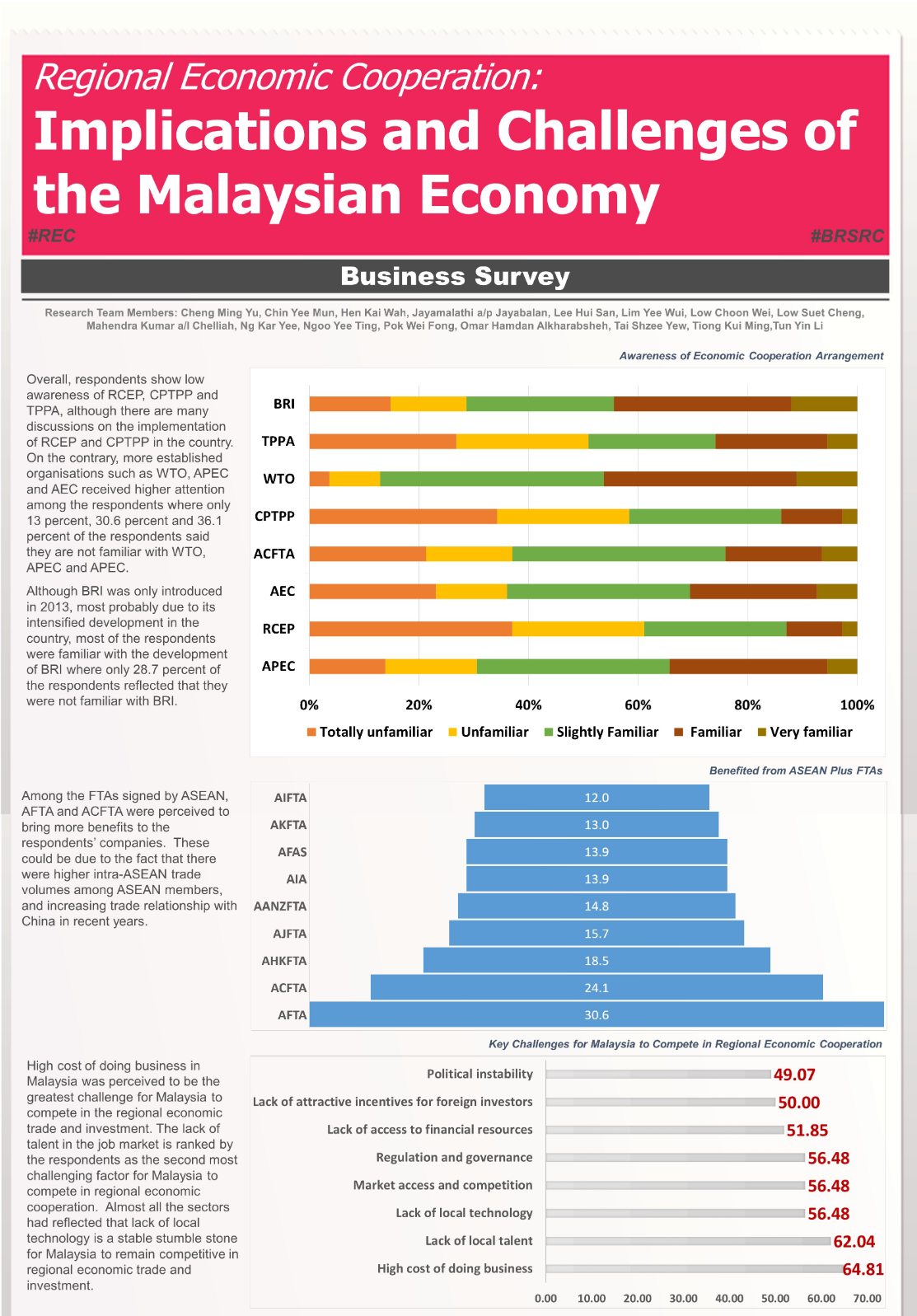Research
Regional Economic Cooperation (REC)
Executive Summary
REGIONAL ECONOMIC COOPERATION: IMPLICATIONS AND CHALLENGES OF THE MALAYSIAN ECONOMY
The main objective of the project is to analyse the implications of regional economic cooperation on the Malaysian economy. In particular, the study examined the perceptions of the general public on the potential benefits of the regional economic cooperation, the readiness of the Malaysian businesses to participate in regional economic cooperation and the key challenges as well as the opportunities for Malaysia’s participation in regional economic cooperation. The development of BRI has received great attention in Malaysia, hence this study also investigated the perception of the public and business sector on Malaysia’s participation in BRI and the role of China in regional economic development.
By utilising both the primary and secondary data, this study analysed implications of regional economic cooperation to Malaysia’s economy and examined the perceptions of the public and the business sector on the potential benefits and challenges of regional economic cooperation. The econometric analysis highlighted the close relationship between the economies in the region. The findings indicated that generally, Malaysia economic performance is highly dependent on the economic performance of Thailand, Vietnam and Singapore while exports and changes in the exports to China, Vietnam, Cambodia, the Philippines, Thailand and Singapore would have an impact on Malaysia’s GDP. The data collected from the general public and the business sectors revealed that international trade and foreign investment play a significant role in the Malaysian economy. It is important for Malaysia to participate actively in international and regional economic cooperation. China is seen as a strategic partner of Malaysia in recent years, especially after the launching of the Belt and Road Initiative (BRI).
Regional Economic Cooperation: Implications and Challenges of the Malaysian Economy



